Dear participants,
I am addressing you as your guide in the session on design thinking and research (April 2, 2020). I thank you in advance for your willingness to engage with our topic at that time – despite your recent elevation to being experts in (systems, ethical, dialectical, complexity and other types of) thinking and even pluralistic research.
The aim of our meeting is to explore our differences as well as those in the literature – rather than judge them. As the popular saying now is, we should create ‘a level playing field’. I propose that you prepare by exploring on the Internet or in a library some of the topics I suggest below. You might wish to summarise your findings in half a page (or less) for each issue and send them to me a week in advance. Don’t hesitate to be extreme; that is most enlightening to others. I will comment only during the discussion in April.
1. As the title of our meeting suggests its aim is that we explore two forms of repeatable activities. The second appears to be something one should replace quickly by something else (it is lambasted as mechanical, as abstract and quantitative and even as vintage) – so one wonders whether it is worth to consider it a form of thinking. It also seems that nearly anything may serve as replacement – so one also wonders whether it is worth replacing.
2. There doesn’t seem to be any single publication that summarises all the different methods that are labelled scientific research or design research. Even so it seems worthwhile to explore what might demarcate either activity.
a. I propose that everyone studies (or researches!) the characteristics and definitions of whatever is labelled scientific research or design research.
To repeat: a summary of the findings in half a page or less would be appreciated (for each activity apart).
3. The large number of such characterisations in the literature suggests that there may be a general reason why it appears difficult if not impossible to arrive at a single one. It may have to do with the form of research that preceded it. A new type of thinking (like systems thinking) tends to be developed to deal with the area where some form of research didn’t work anymore. The relation is sometimes recognised as a negation or a paradox. This way one may escape the prison of applying a method. New types are therefore often treated as forms of research – and vice versa.
b. I propose that you explore the act of problem solving. What was its predecessor? In view of the above, do you wish to consider problem solving a form of thinking or a method of research? What would be the difference, if any? Do you know of any social science research that helped to solve a problem completely (i.e. not just address parts)?
To repeat: half a page or less should suffice for answers to all questions together.
5. One area where research (in any or most definitions – as we will explore) fails and has failed is in the study of human experiences like emotions (feelings of happiness, of compassion, of generosity, of love and hate and so on) as well as of those like preferences and personal motivation. This may be due to its focus on a method to replace other people’s experiences by a theory or other description. An alternative is to focus on constraints that support the change (and preferably the improvement) of someone’s thinking in situ. Such improvement suggests the need for a method to search for methods that constrain people in support of their thinking.
c. I propose to explore how one might think (or do research; see point 3) to improve one’s experiences (other than observations) in that they better support one’s transit to the future. Doing so should liberate being human so one can enjoy its full richness and variety – together with others. This exploration might be part of the discussions on April 2. You are free to prepare for this discussion or not. If you do, think of ways we improve our personal, non-observational experiences in daily life (or try to).
To repeat: half a page or less should suffice.
6. The issues summarised above relate to many discussions – now and in the past – concerning a wide variety of topics such as the role of research (scientific or design), to think, to consider reality, to be human together with others, to stay outside any particular form of thinking and thereby be ready to develop new ones and act in freedom, etc.
d. I propose to look at the characters in the play Antigone by Sophocles (I think it is available on the Internet for free). Which of them is thinking – Creon or Antigone, or any of the others?
Yours,
Gerard de Zeeuw
e-mail: gerard@cict.demon.co.uk


